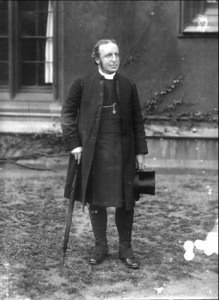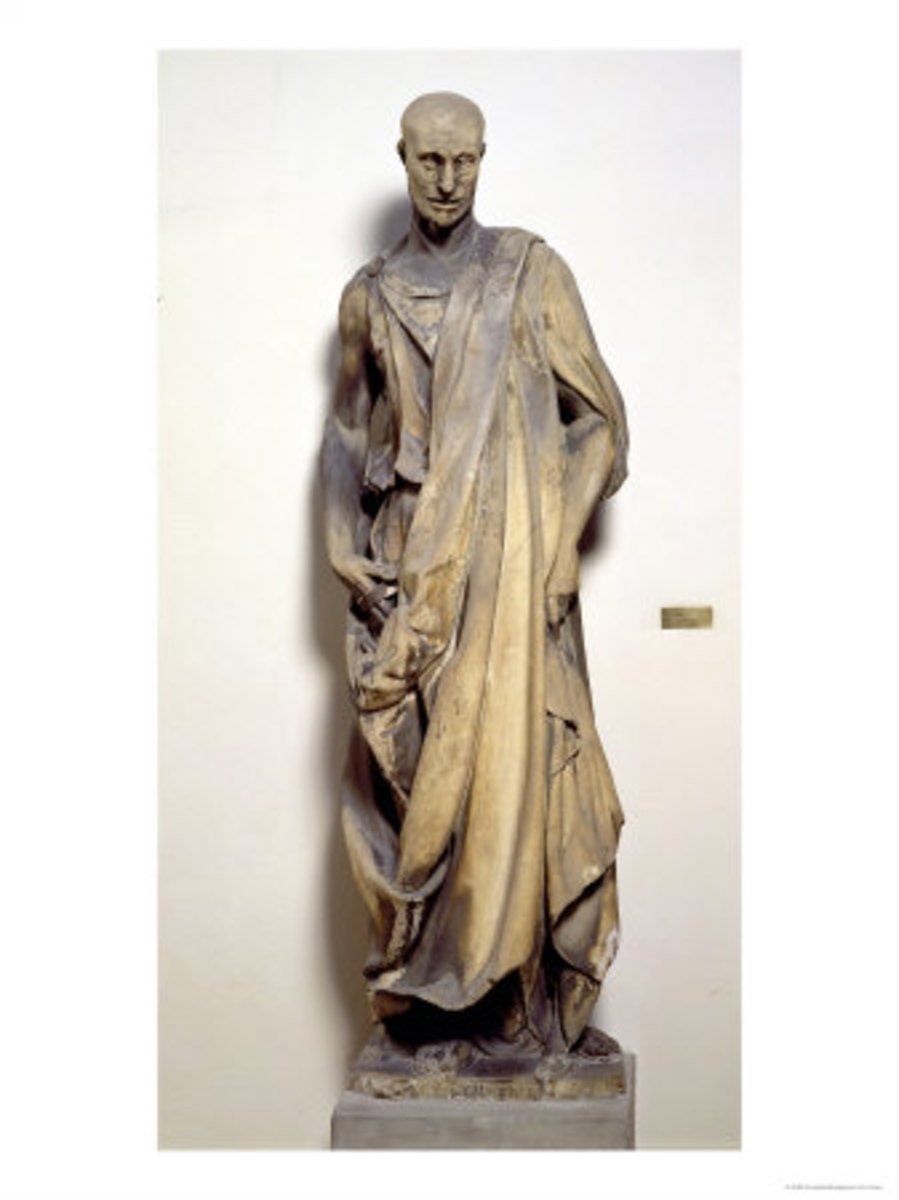The Message of Keswick


Introduction:
I am told that there is a quite a lot of criticism regarding Keswick and its 'pietistic theology'. Here is a sample from the Internet: Pietistic Goofiness: How Keswick Theology Nearly Destroyed J.I. Packer. It is written by one who Kevin DeYoung, who describes himself as 'Restless, and Reformed'. Restless? Alas, there are many who are obsessed with doctrine, rather than being devoted to Christ. They are the ones who have never found 'rest for their souls'.
I am told there is a book by Andrew David Naselli, titled Let Go and Let God? A Survey and Analysis of Keswick Theology. And he is the new hero on the 'Reformed block', for finding fault with Keswick theology!
I have not been impressed with the 'Reformed' in any way, having seen them at close quarters during my six-month stay in the U.S.A. Death reigns in their assemblies. Neither, I must say, has J.I.Packer impressed me, though I do have his book, Knowing God, which I purchased in the early years of my conversion. I have, thankfully, since grown out of it.
All that I can say at this time is that I find nothing wrong with Canon Battersby, Webb-Peploe, Handley Moule, Elder Cumming, Hudson Taylor, Amy Carmichael, F.B. Meyer, Andrew Murray, Evan Hopkins, Charles A. Fox, etc. Those associated with the Keswick Movement in the 19th century were spiritual giants compared to the religious and theological pygmies of today.
P.S. I do not hold a brief for Robert or Hannah Pearsall Smith, and I believe in some ways they were 'quietistic' and 'extreme'. But the evangelical Anglicans, Baptists and others listed in the Keswick Movement were not those easily carried away by 'doubtful doctrines'.
- Pratonix
HYMN
“Buried with Christ” and raised with Him too ;
What is there left for me to do ?
Simply to cease from struggling and strife,
Simply to “walk in newness of life.”
Chorus, Glory be to God.
“Risen with Christ,” my glorious Head,
Holiness now the pathway I tread,
Beautiful thought, while walking therein :
“He that is dead is freed from sin.”
“Living with Christ,”who “dieth no more,”
Following Christ, who goeth before;
I am from bondage utterly freed,
Reckoning self as “dead indeed.”
Living for Christ, my members I yield,
Servants to God, for evermore sealed,
“Not under law,” I’m now “ under grace,”
Sin is dethroned, and Christ takes its place.
Growing in Christ; no more shall be named
Things of which now I’m truly ashamed,
“Fruit unto holiness” will I bear
Life evermore the end I shall share.
T. RYDER.
******
The Message : Its Scriptural Character
The teaching of the Keswick Convention is a phrase which invites, as we use it, a word of earnest disclaimer of all thought of asserting for “Keswick” a monopoly in any spiritual truth. No doubt the great Convention in the quiet Lake-land town has been connected, now for more than 30 years, and in a way of its own, with the delivery of one great side of the Christian message. But those who love the Keswick Convention best, and who have most cause to thank God for its existence, will be the first to say that the teaching connected with it is no private property of the place and the occasion; it is as old as the Apostles, and as catholic as the Creeds. And our thankful belief is that “Keswick” has done its best and greatest work, and is doing it, not by forming a self-contained “school” of its own, but by recalling, far and wide, among a large variety of “schools” and regions of Christian life and witness, certain great elements of truth which have tended too often to fall out of the common view.
What then do we understand, what do I understand, by the Teaching of the Keswick Convention?
In my answer to this question I shall try to keep strictly to the essentials. Many great topics of the spiritual life are handled at every Keswick Convention. But not all of them are distinctive of its special message, as I understand it ; and not all who take the teacher’s or witness part there are agreed on all these other topics. Those aspects of the Biblical doctrine of Holiness on which essential agreement is sure, and is general there, can alone be rightly called Keswick Teaching. And I think that those aspects can all be summed up under the one short phrase, “HOLINESS BY FAITH.”
Briefly, let me develop that phrase.
First, then, What is Holiness ? What does that great word denote, as it will be understood at Keswick, and as, I trust, it will be understood everywhere in the light of the Scriptures? It is the state of character, and of life, conditioned by surrender to the Will of God, and by a conformity to that Will resulting from the surrender. It is dedication to Him, on the part of the man whom He has redeemed. It is the attitude and habit of the Christian who, in his whole nature, body, soul and spirit, “lives out” that dedication.
It is heart-obedience, but more. It is the obedience of the worshipper, the votary, the devotee, who humbly “yields himself unto God,” as unto the adored and beloved Maker, Redeemer, Possessor of his being.
Then, further, What is Faith ? I reply, unhesitatingly, that it is, in absolute simplicity, Reliance. It is Trust reposed upon Another. It is the attitude of quiet confidence in Him, as able to keep His promises, and willing to do so, and under gracious covenant to do so. The stress and emphasis of the idea of Faith is just upon that point, that it is a “looking off” upon our Lord Jesus Christ, away from our own labour and effort. It removes the soul’s reliant attention, so to speak, from the energies of our own will to the energies of His. It is the look and action of one who, discovering that the disorders of his inmost soul are too much for him, turns in the “confidence of self-despair” to Him Who “is able to subdue all things to Himself,” and then gives over the problem into His hands.
It is the attitude and action, for example, of one who, wrestling long and in vain with internal pollutions of thought, turns away at last to ask his Lord, in simplicity, to “cleanse the thoughts of his heart,” and to keep them clean. Or again of one who, hopeless of a victory by his own will over his own impatient and angry spirit, asks that his Lord will “keep his temper for him” -- and finds that He can do it.
Such, in its essentials, is the doctrine of Holiness by Faith. It is not the entire Gospel, by any means, but it is a great element in it. It is no substitute for Justification by Faith. Rather it presupposes it; being itself the sequel truth which justification takes for granted as its complement and crown. And again, it is no contradiction to the inviolable claims of discipline and diligence. It does not discredit for one moment the call to watch, to pray, to “keep under the body and bring it into subjection,” to explore and ponder the Scriptures, to use the sacred benefits of solemn public worship, and in particular of the Holy Communion of the Lord’s Body and Blood, to prize and cultivate reverential and loving fellowship with the Church of God. But it does tend earnestly to remind the believer that, behind and within all these heaven-given and heaven-commanded means of blessing, whose effect, singly and together, is always to keep the spiritual faculties alive and alert, and to guide and harmonize of Holiness, is Faith.
Ultimately, at the heart of everything, the man, in order to live the life of dedicated loyalty, in order to receive more and more the spiritual force with which to live it, is to “act Faith,” (i.e. 'exercise faith') hour by hour, step by step. He is to bring his internal needs, lackings, weaknesses, rebellions, direct to his Lord, spirit to Spirit, and he is to trust Him in His grace and power to set him, and to keep him, free; to set him, and to keep him in such relations with His life and with His will - that an unhindered growth may be his happy experience, now and here, in real life.
This is the characteristic and unanimous message of "Keswick". And the Convention has always emphasized that side of the message which insists on the present possibilities of the matter. In God’s providence “Keswick” has been kept from ever formulating, as its authentic message, a dream of “sinlessness,” which would be deeply at variance with the spirit which “veils the face” and sings, “Holy, Holy, Holy" - a dream which always, so far as it really rules the soul, tends away from a tender humbleness. But “Keswick” has always and with one voice said that the believer, “acting Faith” (exercising faith) on his indwelling Lord, and dwelling in his Lord by Faith, is to expect not defeat, but victory. He is boldly, and humbly, to claim the promises of liberty and purity, in a valid and wonderful reality, here and now. He is to expect even inveterate sins to be even suddenly rebuked and subdued by Him Who is able to do it in him, and for him. He is to feel a holy discontent with failure, as with that which, in the name of the Lord Jesus, need not be. Not only as to outward trials, but as to temptations within, he is to expect to be, here and now, “more than conqueror, through Him that loveth him.” And so he is to expect to be, in an ever truer completeness “a vessel sanctified, and meet for the Master’s use” - which is the true end and goal of his regenerate existence.
Now we affirm that such a doctrine of Holiness by Faith is deeply and soundly Scriptural. I will attempt to support the affirmation, that I may be as concise as I can, by quoting from my own little theological book, Outlines of Christian Doctrine (pp. 191, etc.) : “The holy precepts for renewed man amount in their sum to just this: a total abstinence in Christ's name from admitted sinning, of motive and act, and a true and entire dedication of spirit, soul, and body to the will of God.
“The work of Faith in Sanctification is manifold. Faith is exercised at whatever moment the Christian for any purpose definitely trusts his Lord’s word and power. It is precisely the same faculty as that exercised in receiving remission, and its exercise is quite as simple as then; but it now takes another direction. And this direction figures very largely in the Scriptures in the matter of the Christian’s victory over sin, or deliverance from it (see e.g. Acts xv. 9, xxvi. 18 ; Gal.ii. 20; Eph. vi. 16). It is clearly indicated [in Scripture] that for the man in living contact with Christ the true secret for internal purity is Christ (i Cor. i.30 ; cp. vi.17), living and overcoming within, by the Holy Spirit, who effects His presence there. And our part is -- to believe.
“In one great passage (Eph. iii. 14-19) we reach the heart of the matter. The believer's practical experience of all the fulness of God, i.e., of all that which, being in Him, is communicable as holiness to His regenerate creature, is there connected with the coming of Christ to dwell in the heart. And this is connected on one hand with the work of the Spirit, strengthening the Christian in the inner man, and on the other hand with the Christian’s faith, obviously as the result of that divine work. The indwelling, with its sequel of blessings, is secured and retained, on our side, by faith; not by a process of discipline and labour, but by the same humble and reverent reliance on God in His Word which is our entrance into justification. Thus the heart is purified by faith, because faith is the admission into it of Jesus Christ, its indwelling Redeemer, Friend, and King, divinely able so to work on it and in it, along all its lines of spontaneity, as to conform it effectually, yet without force, to His most sacred will in all things.
“This deep yet open secret of spiritual victory is largely illustrated in Scripture. The combat of the soul is seen portrayed, for all believing students, in the language of the Psalms about enemies and battle. And the Psalms bear inexhaustible witness to a secret of victory which is in fact the man's committal of himself, for victory, to Jehovah (see, out of many passages, Psalms xxv.15. xxvii.1- 6, cxxxviii.7- 8). His is the one really prevalent force; His people prevail by Him. So with the conflict of the Christian under temptation. His secret is ‘to put on the Lord Jesus Christ’ (Rom. xiii. 14), who is, in effect, ‘the whole armour, the panoply, of God’ (Eph. vi.11).* In Him alone, as vantage-ground and fortress, His follower is ‘strong’ (Eph. vi.10) against the powers of evil. In Him, enabling, the Christian has strength for all things (Phil. iv.13) which are to be borne or done in the will of God.
“This divine principle is vitally connected with the doctrine of our Union with Christ as the Second Man, in whom Manhood, perfected and glorified, is personally united to Godhead, and who, thus constituted the Head of His people, is for them the Fountain of all grace and virtue, to be derived from Him by faith in Him.”**
In the present writer’s deep conviction, not without experiences keenly searching and humbling, yet full of the mercy and faithfulness of God, the doctrine of Holiness by Faith is a factor of quite vital significance in the liberty and growth of the Christian life. Like every capital truth, it needs, for our full safety in using it, and so for its full benefit in our lives, to be taught and to be applied in contact and in balance with other such truths for example, with the truth of guilt, and with that of justification.
[*St. Jerome rightly comments here that “most clearly, by all the arms of God, the Saviour is to be understood”]
[**See Marshall (1690), Gospel Mystery of Sanctification]
But let it be so held, and held indeed, or rather let it hold indeed the sorely-needing soul, and then discoveries of freedom and strength will be made, amidst all the realities of our weakness, which will give occasion for humble but most happy testimony, glorifying not unto us but to our all-blessed Lord. And that testimony will best express itself in Scriptural words:” He said unto me, My grace is sufficient for thee, for my strength is made perfect in weakness. Most gladly therefore will I rather glory in my infirmities, that the power of Christ may rest upon me. For when I am weak, then am I strong.” (2 Cor. xii. 9, 10). And again: “I am crucified with Christ, nevertheless I live; yet not I, but Christ liveth in me ; and the life which I now live in the flesh I live by my faith in the Son of God, who loved me, and gave Himself for me.” (Gal. ii. 20).
HANDLEY C.G. MOULE, THE BISHOP OF DURHAM
A Brief Note on Handley Moule, Bishop of Durham
Handley Carr Glyn Moule (23 December 1841; died 8 May 1920) was Bishop of Durham from 1901-1920.
He was the eighth and final son of Henry Moule (1801-1880), an inventor and the vicar of Fordington for over 50 years. Handley's brothers George Evans Moule and Arthur Evans Moule were missionaries in China, another brother Charles Walter Moule was president of Corpus Christi, and his grand-nephew C. F. D. Moule was a notable theologian.
Moule was schooled at home before entering Trinity College, Cambridge in 1860, where he graduated BA in 1864. He then took up a college fellowship and became an assistant master at Marlborough College before he was ordained deacon in 1867 and priest in 1868. Between 1867 and 1872 he was his father's curate, then for five years dean of Trinity. In 1880 he became the first principal of Ridley Hall, Cambridge, and then in 1899 became Norrisian Professor of Divinity at the University of Cambridge, until his appointment as Bishop of Durham in 1901. Moule was active in the Keswick Movement. He was a New Testament scholar who wrote over 60 books and pamphlets. He is buried in St Cuthbert's Cemetery, Durham, England.
from Wikipedia








